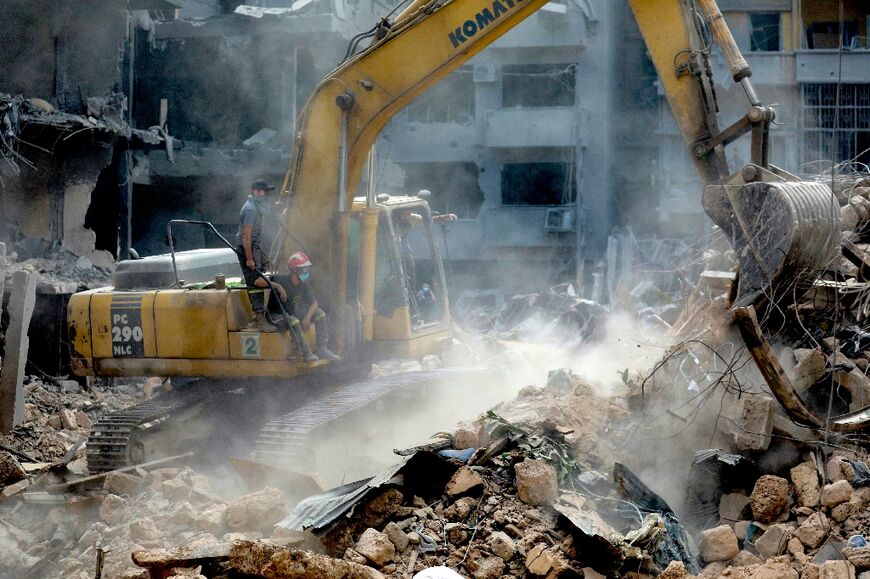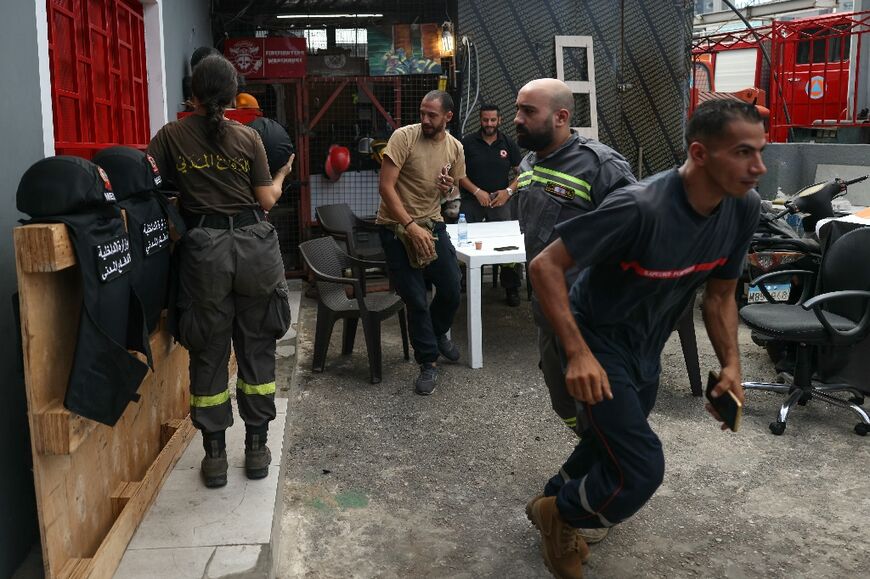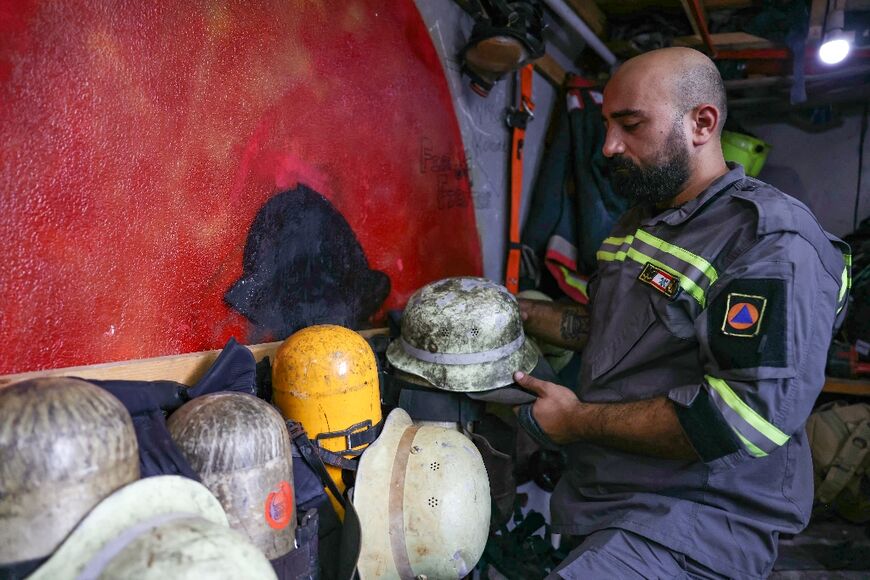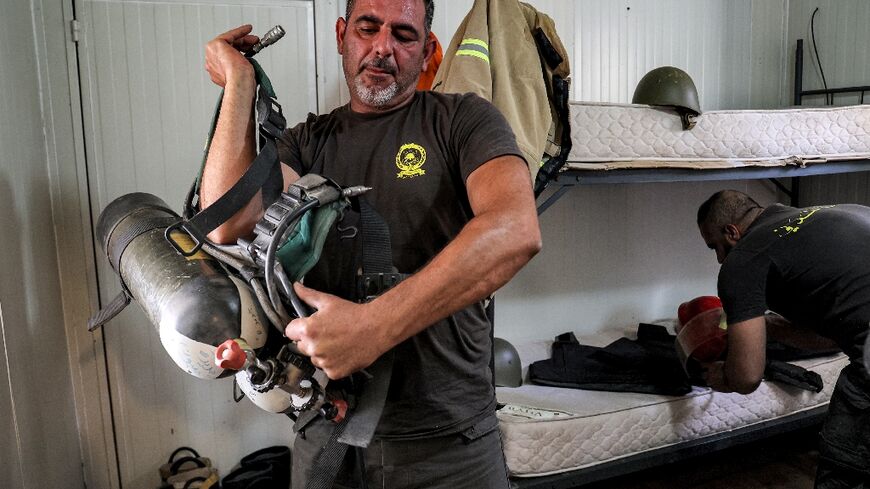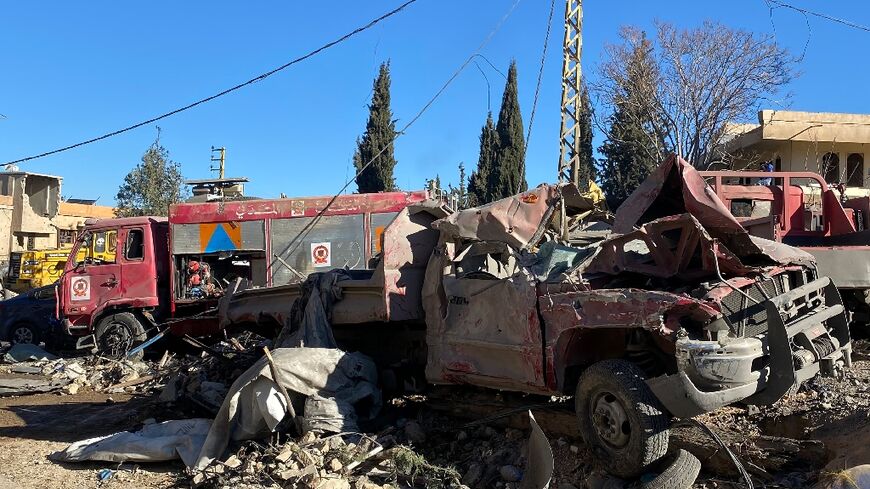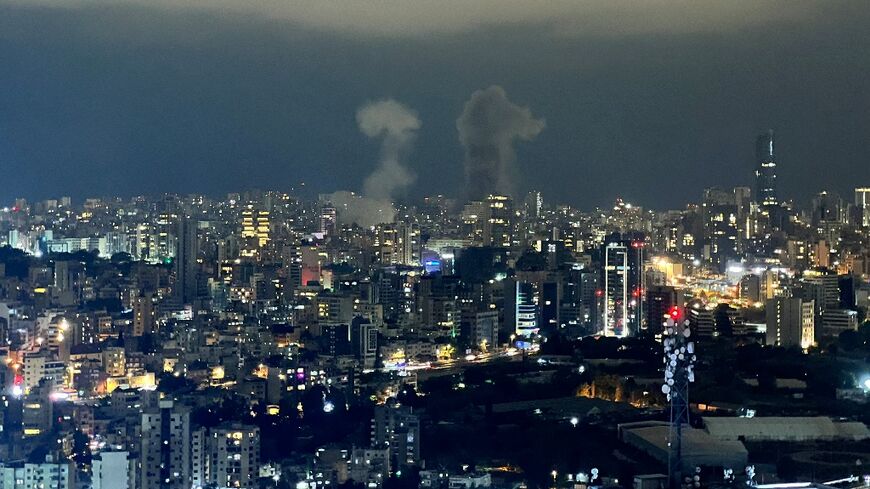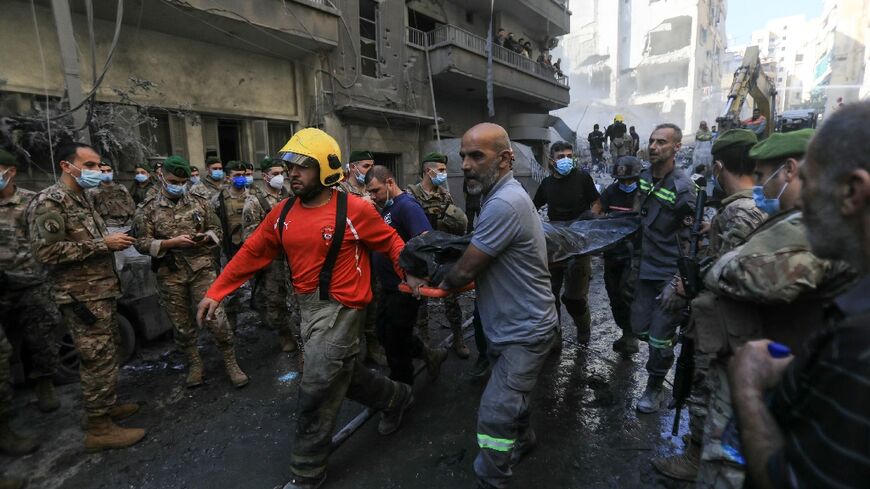Lebanon rescuers defy danger, lack of resources to keep working

When volunteer Lebanese rescue worker Aya Wehbeh was called to respond to a rare Israeli strike in central Beirut last week, she was terrified it had hit her family home.
"This period is really tough," the 25-year-old said days after the twin strikes on the Nweiri and Basta districts of the capital left at least 22 dead.
"I could have ended up pulling my mother, father, aunt or neighbour from the rubble," she said.
"I've been volunteering for five years but this ongoing offensive in very different from the other years."
After almost a year of cross-border fire, Israel on September 23 dramatically increased its air strikes on militant group Hezbollah's main Lebanon strongholds.
The raids -- mostly on the south and east of the country, as well as the capital's southern suburbs -- have since killed more than 1,300 people, according to an AFP tally of official figures.
Across the country, rescue workers are struggling to respond, with their resources already depleted by five years of economic crisis and fearing that they could be killed like dozens of colleagues over the past year.
In the main civil defence unit in Beirut, rescuers this week waited for emergency calls on plastic chairs inside the station.
Wissam al-Qubeissi, 29, said he was determined to continue trying to save people despite the challenges.
"We're many and highly motivated," said the volunteer, wearing a grey uniform he paid for himself.
"But what's the point if we lack bulldozers, equipment and protective gear?" he asked.
In the storage room, he showed AFP rusty helmets, worn-out fire hoses and extinguishers about to reach their expiry dates.
Qubeissi said he and fellow volunteers were "working with minimal resources".
"If we had more equipment, helmets and fireproof jackets, we could have been more" help, said the volunteer, who earns a salary as a communications manager in the private sector.
- 'Exhausted' -
The latest escalation between Israel and Hezbollah comes with Lebanon still in the grips of a crippling economic crisis, the worst in its history, that began in 2019.
The value of the local currency has plummeted, leaving public services struggling to cope.
Civil defence special operations manager Youssef Mellah said the financial crisis had left the official body cash-strapped and complicated their work.
"If something stops working, it takes ages to replace it," said the man who oversees the work of 8,000 rescuers at 235 civil defence stations across the country.
"Most of the equipment we use, like the bulldozers, have been donated by individuals or organisations," he said.
In the south of the country, the job is even more tiring.
Israeli air strikes have pounded the area, while Israeli troops have clashed with Hezbollah on the frontier in recent days.
Anis Abla, civil defence chief in the southern border town of Marjayoun, said he suffered severe burns to his face and hands two months ago while extinguishing a fire caused by Israeli shelling.
"Our rescue missions are becoming more and more difficult, because the strikes are never-ending and target us," he said.
"We're exhausted."
The Lebanese Red Cross said its paramedics were hit by a strike on Sunday while attending the site of an earlier attack in the south, leaving them lightly injured.
Earlier this month, the health minister said more than 40 paramedics and firefighters had been killed by Israeli fire in just three days.
Abla said the rescue workers were determined to keep going.
"We're protecting the people of Lebanon", he said.


